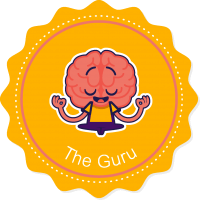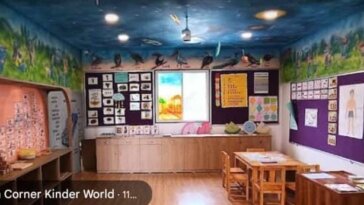Language development milestones are a significant tool for monitoring children’s language development. While there is a vast range of ‘normal’ months of age, every child learns at their own speed, missing a milestone may be an early warning that your child is failing to hear, comprehend or utilize language skills. Infants, throughout language development, may face problems therefore, milestones are indicators of when a child is struggling in a certain area of speech development.
Milestones of language and child development for infants aged 0 to 2 years:
- Children up to 3 months
- Responds to speech sound and other stimuli by actively listening
- Expresses emotions by cooing, gurgling, smiling, and weeping.
- There will be a predominance of vowels, but they will begin to vocalize with two syllables.
- Cognitively, the child will begin exploratory play by mouthing and touching items; will start observing the eyes and mouth of the speaker.
- 4 to 6 months
- Considers your voice, several additional noises and speeches
- Responds to one’s own name.
- Laughs or squeals; mutters a string of phrases.
- Modifies volume, rate, and pitch by manipulating sound.
- Cognitively, the child starts to play; visually follows a disappearing item; examines things; and reaches out to pick up a fallen object.
- 7 to 12 month
- Recognizes family members, attends to music or singing, and views identified photographs with an adult.
- Complies with certain orders, particularly when accompanied by visual signals (e.g., bye-bye), and starts two-syllable jargon-like simple sentences.
- By 12 months, the child may be able to say 3-4 words.
- Understand simple commands
- Cognitively, the child will employ trial and error to achieve a goal; enhance mimicry; understand non-verbal communication correctly use familiar things.
- 13 to 18 months
- By 18 months of age, around 15 significant words are produced or used.
- Long-term consistency in simple sentences
- Requests “more” and points to images in a book.
- Cognitively, the infant delivers a toy when requested, lifts the lid of a box to uncover a concealed toy, investigates the surroundings, seeks attention and imitates many new motions.
- 19 to 24 months
- Likes rhyming games; pulls a person to show them something; utilizes “I” and “my”; and identifies the most frequent items.
- Utilizes brief incomplete phrases and simple sentences (such as “want juice” and “vehicle go”).
- By 24 months, a child may be able to comprehend 200-300 words (although not necessarily utilize them). Able to speak complicated sentences.
- Infant cognitive development continues to mature, the class infant recognizes forms; sits alone with books for brief times; matches familiar items; comprehends complex sentences; and points to a body part.










